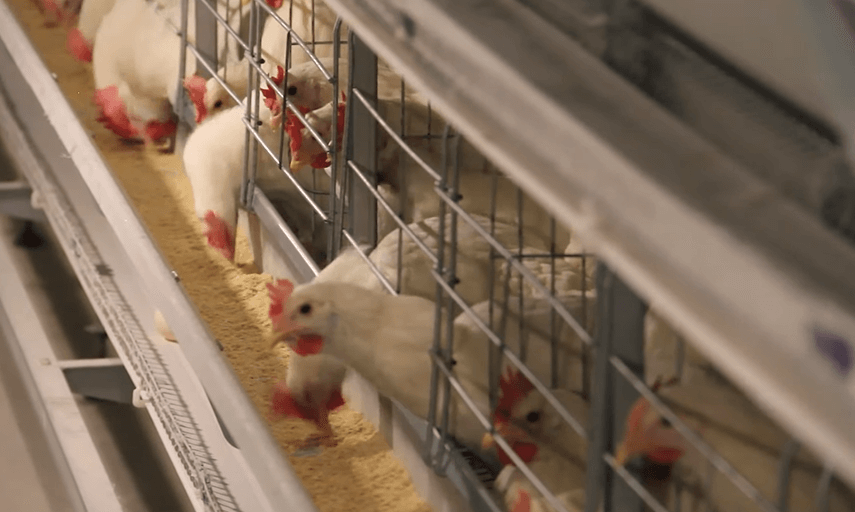With the goal of eradicating battery cages for chickens, Slovenia and Sweden are making significant progress.
In January 2025, the Slovenian government announced its decision to prohibit the keeping of chickens in cages, with the ban set to take effect by 2028 at the latest. This choice was influenced in part by the 2024 campaign of the Animal Enterprise Transparency Project, which utilized undercover footage to reveal the shocking conditions within the Slovenian poultry industry. The video revealed chickens laying eggs on the remains of their own species, confined in cages piled atop one another, devoid of space to move or any chance to exhibit natural behaviors.
Public uproar in Slovenia
The disclosures ignited a significant wave of public indignation. The Slovenian populace expressed outrage not only at the deplorable living conditions of the animals but also at the unsanitary practices and the potential threats to food safety posed by this industry. The increasing demands from the public compelled the government to enforce more stringent animal welfare regulations. The outcome resulted in a decisive move to implement a total ban on cage housing for chickens in the coming years.
Sweden sees a decline in caged chickens
In Sweden, the proportion of chickens housed in cages has fallen to under 1 percent of the total, largely due to the initiatives of the animal welfare organization Project 1882. Since 2008, over two million chickens have been rescued from confinement, with 90,000 of those saved just in 2024.
The reduction can primarily be attributed to the pledges made by Swedish wholesalers, supermarkets, and restaurants to provide improved living conditions for chickens, rather than actions taken by the government, as seen in Slovenia. Despite Sweden’s near elimination of cage housing for chickens, the CEO of Project 1882 remains steadfast in advocating for a thorough EU ban on the confinement of animals in cages. This represents the sole method to guarantee that no animal will be confined in a cage within the EU moving forward.
Caged chicken in broader context
In addition to Sweden and Slovenia, several other EU nations have implemented measures to restrict cage housing in recent years. Austria and Luxembourg have taken decisive action by imposing a ban, and Germany is set to follow suit with a complete ban on the use of cages starting in 2025. Regrettably, in the Netherlands, there are still 4 million chickens confined in what are known as ‘colony cages’. The chickens are tightly packed into these confined cages. They are devoid of sunlight and the natural world outside.
In spite of these collective national initiatives, a comprehensive ban across the EU remains elusive. The End the Cage Age citizens’ initiative, which gained traction in 2020 and amassed more than 1.4 million signatures, resulted in a commitment from the European Commission in 2021 to draft legislation aimed at banning cages. Nevertheless, the anticipated concrete regulations remain unresolved.
Chicken cage regulation in EU
This regulation could be implemented over a considerable period due to the landmark lawsuit filed against the European Commission by various animal rights groups at the Court of Justice of the European Union in 2024.
The transition to a cage-free sector faces another hurdle: the significant importation of eggs from laying hens that continue to be housed in cages. Despite the increasing number of EU countries implementing bans on cages, billions of eggs sourced from caged hens continue to be utilized in the production of items like mayonnaise, pasta, and biscuits. Eggs frequently come from nations beyond the EU, including Ukraine and various Asian countries, where the standards for animal welfare are considerably less stringent.
This scenario not only fosters inequitable competition for European farmers who are committed to enhancing the living conditions for their livestock. Consumers may be inadvertently supporting animal suffering by purchasing products that include cage eggs. A comprehensive ban across the EU on the production and import of cage eggs would represent a significant advancement in addressing this issue. Thus, we can bring the Cage Age to a close.










+ There are no comments
Add yours